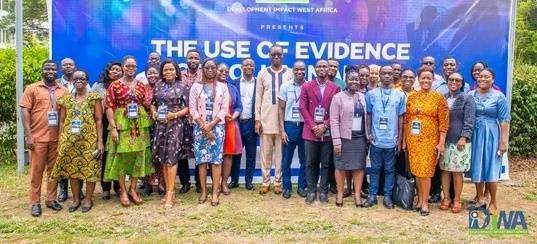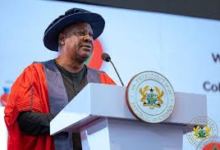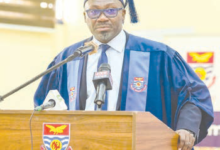CSOs, Journalists schooled on evidence use to inform policy decision

More than 50 selected Civil Society Organisations (CSOs) and media practitioners from the Greater Accra Region were on Monday schooled on the use of evidence to inform policy decision.
The two-day training workshop organised by Development Impact West Africa (DIWA) in partnership with Ghana Institute of Management and Public Administration (GIMPA) and Centre for Effective Global Action (CEGA) aimed at deepening knowledge and foster collaboration among key stakeholders to advance evidence-based policy decisions.
Funded by Hewlett Foundation, the workshop was expected to increased participants understanding of evidence-based policy making principles, including the importance of utilising reliable data and research findings in the policy decision making processes.
The participants were taken through topics such as introduction to evidence and evidence informed policy making, assessing and searching for evidence, communicating and using evidence, introduction to monitoring and evaluation, stakeholder and problem analysis, theory of change, and results framework.
The Director of DIWA, Professor Charles Amoatey said the media and CSOs play critical role in championing evidence use, and so the workshop was tailored at developing the skills for generating data and using evidence to champion how government functions in terms of interventions to address the needs of the people.
“We’re expecting that after this training, the media will be able to ask the right questions, it’s not enough for politicians to say we’ve built 5 km of roads, schools, the question is and so what?…how has this interventions transform the ordinary Ghanaian. If they’re not able to answer that questions, it means that those interventions have not helped the people,” he added.
Prof. Amoatey said the role of evidence in political governance all over the world was critical, serving as the bedrock of informed decision-making and effective policy formulation, therefore the workshop would enhanced the capacity of participants to advocate for evidence-based policy making, strengthened communication and advocacy skills, while improving accountability.
As a result, he said the media and CSOs would be better equipped to engage with policymakers, raise awareness about evidence-based approaches, and contribute to more informed and effective policy decisions in Ghana.
“As the 2024 elections loom, political parties are poised to unveil their manifestos for the country’s trajectory. The media and CSOs must assume proactive roles in reshaping the landscape of policymaking by asking relevant questions,” he stated.
Senior Governance Advisor at African Centre for Parliamentary Affairs (ACEPA), Mr Issifu Lampo, for his part, said using evidence informed policy making required more inclusive understanding of evidence that recognised diverse forms of knowledge and information such as citizen knowledge, practical experience, and administrative data.
He indicated that in the context of Parliaments, evidence was fundamental to the execution of a parliament’s three core functions of representation, scrutiny and oversight.
However, without a range of different sources and types of timely and accurate evidence, he said parliaments could not meaningfully hold the Executive to account nor represent the citizenry.
“This is of particular note in emerging or fragile democracies, where governance institutions are evolving against a backdrop of rapid social, economic and political change. MPs’ ability to perform [their] roles all along the policy and legislative cycle (is) shaped by their access to authoritative and reliable information,” he stated.
BY VIVIAN ARTHUR






